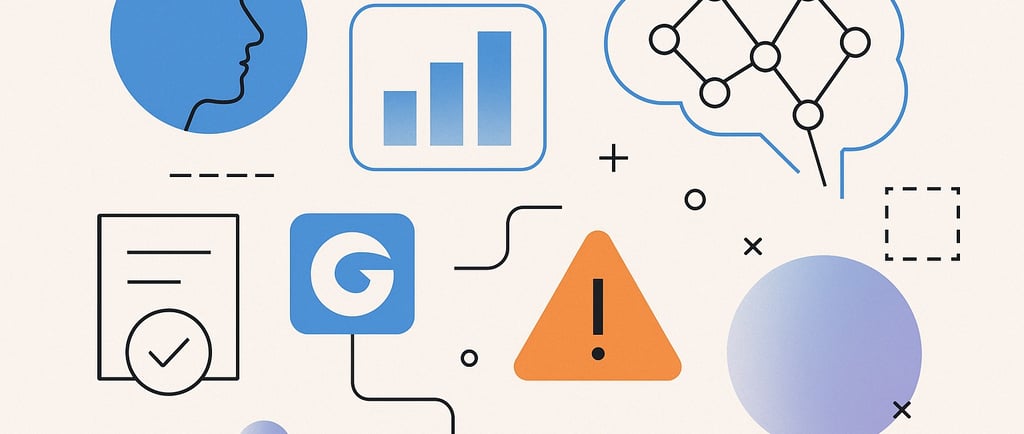DeepMind's Insights on AGI Safety
DeepMind has released a detailed paper on its safety approach to Artificial General Intelligence (AGI), predicting its arrival by 2030. The paper highlights potential severe risks associated with AGI while advocating for proactive safety measures. However, the concept remains contentious, with some experts questioning its feasibility and the associated risks.
USAGEFUTUREPOLICYHALLUCINATIONSTOOLS
The AI Maker
9/22/20252 min read


On September 22, 2025, Google DeepMind unveiled a comprehensive paper detailing its safety approach to Artificial General Intelligence (AGI), a concept that has sparked considerable debate within the AI community. AGI is broadly defined as an AI capable of performing any task that a human can, but opinions on its feasibility vary widely. Some experts dismiss it as a far-off dream, while others, including prominent AI labs, warn that its arrival might be imminent and fraught with peril.
The 145-page document, co-authored by DeepMind co-founder Shane Legg, predicts that AGI could materialize by 2030, potentially leading to what the authors term "severe harm." While the paper does not specify what constitutes severe harm, it raises alarms about possible "existential risks" that could threaten humanity’s very existence. This is certainly sobering food for thought.
DeepMind's approach to AGI risk mitigation differs notably from those of other organizations. For example, the paper critiques Anthropic for its lesser emphasis on rigorous training and security, while suggesting that OpenAI may be overly optimistic about automating safety research focused on alignment. In a landscape where AGI is becoming more tangible, these differing philosophies highlight the importance of robust safety measures.
Interestingly, the document casts doubt on the notion of superintelligent AI—an AI that surpasses human capabilities in all tasks. The authors express skepticism about the near-term emergence of such systems unless there are significant innovations in architecture. They do, however, consider the possibility of "recursive AI improvement," where AI systems enhance their own capabilities, which they caution could be perilous.
As a proactive measure, the authors advocate for developing techniques to prevent bad actors from accessing AGI, enhancing understanding of AI actions, and fortifying the environments in which AI operates. Despite acknowledging that many strategies are still in their infancy and face open research challenges, the paper underscores the urgency of addressing potential safety issues.
While the transformative potential of AGI could offer remarkable benefits, the authors stress the necessity of planning to mitigate severe risks. This responsible approach is critical for developers at the forefront of AI technology.
Of course, not everyone is convinced by DeepMind's assertions. For instance, Heidy Khlaaf, chief AI scientist at the AI Now Institute, argues that the concept of AGI is too vaguely defined for rigorous scientific evaluation. Similarly, Matthew Guzdial, an assistant professor at the University of Alberta, expresses skepticism regarding the feasibility of recursive AI improvement, suggesting that evidence for such advancements remains elusive.
Moreover, Sandra Wachter from Oxford highlights a more immediate concern: the reinforcement of inaccuracies within AI outputs. With generative AI increasingly shaping online information, the risk of AI learning from flawed data is a pressing issue that warrants attention.
In summary, while DeepMind's paper offers a wealth of insights, it’s clear that the discourse around AGI and its safety implications is far from settled. As the landscape evolves, ongoing discussions and research will be crucial in navigating the complexities of AGI.
Cited: https://techcrunch.com/2025/04/02/deepminds-145-page-paper-on-agi-safety-may-not-convince-skeptics/
Your Data, Your Insights
Unlock the power of your data effortlessly. Update it continuously. Automatically.
Answers
Sign up NOW
info at aimaker.com
© 2024. All rights reserved. Terms and Conditions | Privacy Policy
